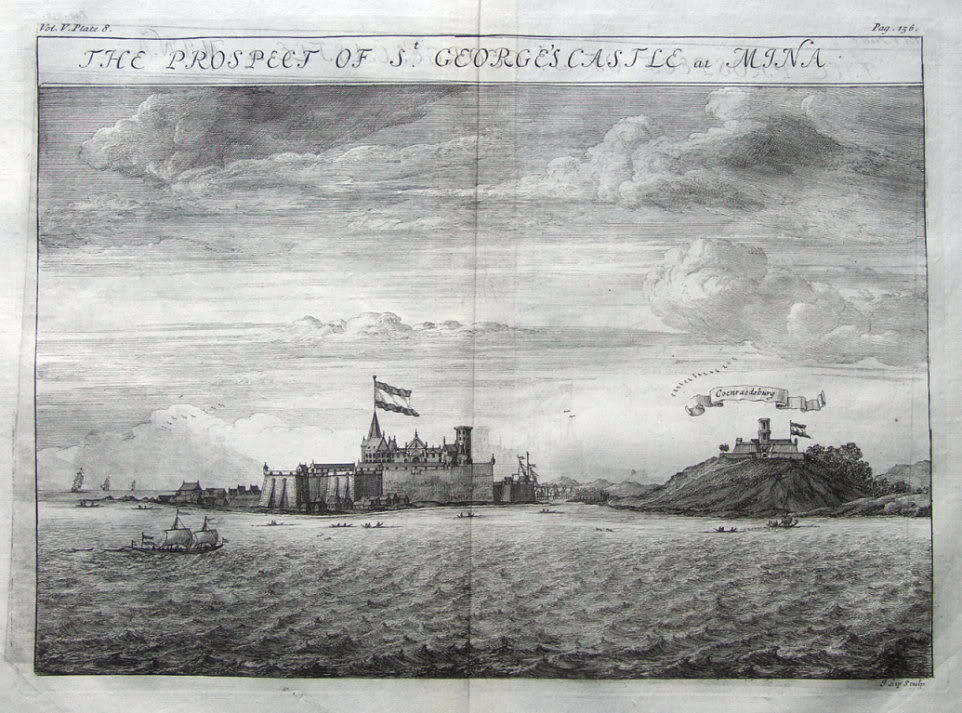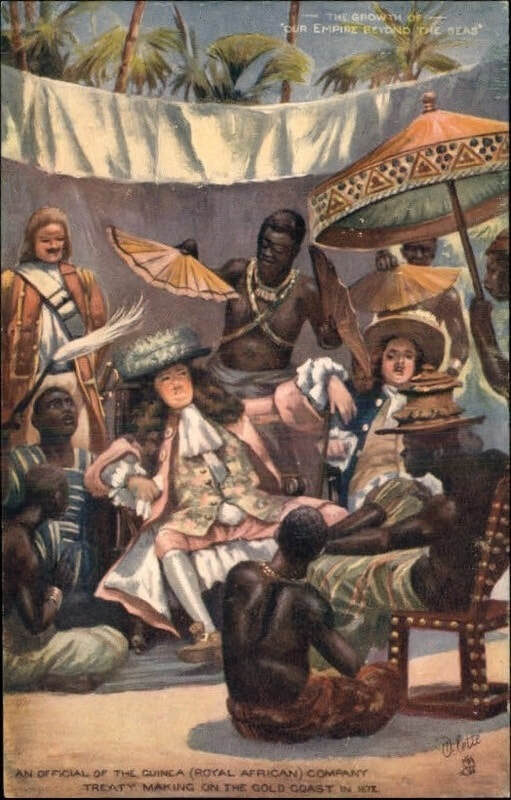The new fort, signifying the permanent involvement of Europeans in West Africa, had a considerable effect on Africans living on the coast. At the urging of the Portuguese, Elmina declared itself an independent state whose Governor then took control of the town’s affairs. The people of Elmina were offered Portuguese protection against attacks from neighbouring coastal tribes, with whom the Portuguese had much less genial relations (even though they were friendly with the powerful trading nations in the African interior.)
If any tribe attempted to trade with a nation other than Portugal, the Portuguese reacted with aggressive force, often by forming alliances with the betraying nation’s enemies. Hostility between tribes increased, and the traditional organization of tribal societies suffered, especially after the Portuguese introduced them to fire-arms, which made the dominance of the stronger tribes easier.
Trade with the Europeans helped make certain goods, such as cloth and beads, more available to the coastal people, but European involvement also disrupted traditional trade routes between coastal people and northern tribes by cutting out the African middlemen. The population of Elmina swelled with traders from other towns hoping to trade with the Portuguese, who gradually established a west-African monopoly.

